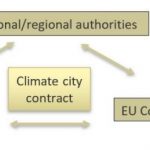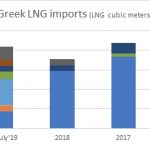What’s holding up the energy transition? Not the hardware, says the energy sector: proven clean energy solutions abound and any bottlenecks are continually being addressed by innovation. Not the money, says the finance sector: there is more than enough investment queueing up for realistic returns. It’s the politics: the voters and the businesses that rationally oppose what could cost them too much. So the main obstacle is the ability of … [Read more...]
Politicians need net-zero scenarios that include socio-economic obstacles and solutions
Standard net-zero scenario modelling carefully analyses the possible impacts of technological solutions and their obstacles. What they’re missing is the detailed analysis of the socio-economic impacts of these scenarios on the lives of citizens. That means jobs, incomes, energy bills, air quality, and regional economic performance. In other words, the politics on the ground. Misunderstood, and perfectly sensible pathways will come up against … [Read more...]
The EU needs an independent science-led climate watchdog, a European Climate Change Council
Europe does not have the right institutional set-up for robust independent policy evaluation as the region enters a new, complex and radical stage of its energy and climate transition, argue Lola Vallejo (IDDRI), Alina Averchenkova (GRI), Matthias Duwe (Ecologic Institute) and Lara Lázaro Touza (Real Instituto Elcano). This month 12 expert advisory bodies in 11 EU Member States published a letter to EU policy-makers to launch an EU-level body, a … [Read more...]
Climate Neutral Cities can be the key to winning public support for the European Green Deal
The EC is currently considering a mission proposal to achieve “100 climate neutral cities by 2030 – by and for the citizens”. Arguing for its endorsement and the proposed umbrella governance, Simon Skillings and Eleonora Moro at E3G explain why cities are an ideal laboratory for tackling the big unanswered question: which European Green Deal (EGD) pathways will win genuine public support. No one should doubt that the EGD will be disruptive. So … [Read more...]
Oil’s decline will weaken its political influence
2020 was another bad year for the oil and gas industry. The pandemic made it worse but it was not the cause: a decline has been going on for a long time. Energy firms in the S&P 500 (overwhelmingly oil and gas) make up 2.3% of the total value, down from 16% just over a decade ago, and 30% forty years ago. Clark Williams-Derry and Tom Sanzillo at IEEFA explain why, how and what the likely consequences are for oil firms. For many years it’s … [Read more...]
China’s new net zero emissions target for 2060: why now, and how?
China’s promise of peak emissions before 2030 and net zero by 2060 is a major and welcome step for the economic (and fossil fuel) powerhouse. Better still, the rest of the world doesn’t need to make concessions to get China to stick to the new target, says John Seaman at the IFRI Centre for Energy & Climate. That’s because an energy transition is in China’s interests. It wants and needs to be at the forefront of new energy technologies to … [Read more...]
Nuclear in 2020: a global look ahead at policy, financing, politics, by country
Dan Yurman presents his worldwide review of nuclear’s prospects. 19 nations are covered. He explains while some countries are planning to scale down nuclear, like South Korea and France, some are increasing investment, like China. Others remain stuck over policy, pricing, financing and politics (e.g. Japan, the U.S.). Exporters of plants, led by Russia, are making moves – not always easily - in Eastern Europe and the Middle East. R&D … [Read more...]
Fossil fuel politics is changing: Big Oil, automakers split on Trump lowering standards
Cara Daggett at Virginia Tech has noticed a positive change in corporate support for the Transition. In the past, Big Oil and automakers would have opposed any limits to business-as-usual. But today, major oil companies, including BP and Royal Dutch Shell, are opposing U.S. President Trump’s intention to further deregulate methane emissions. That’s because they’ve invested heavily in natural gas as a bridge fuel for a clean future, which would … [Read more...]
TurkStream disruption: Turkey, Greece can become new gas hubs
For over 30 years the Trans-Balkan pipeline has been used to pump Russian gas to southeast Europe. But Russia’s construction of the new TurkStream pipelines can open the door for the Trans-Balkan to be re-purposed, explains Aura Sabadus writing for the Atlantic Council. Going forward, LNG can be imported into Turkey and Greece and pumped back up the same pipes to serve the region, reducing dependence on Russian gas. However, such a plan would … [Read more...]
What’s next for the geopolitics of energy transformation?
January’s IRENA report “A New World” has kick-started the debate on how the accelerating deployment of renewables will affect and alter the global distribution of political and economic power. Jan Frederik Braun and Daniel Scholten review its findings and build on the list of issues that must be faced. For example, although the IRENA report focuses on electrification the authors say power-to-gas is likely to play a major role, and we must face up … [Read more...]











